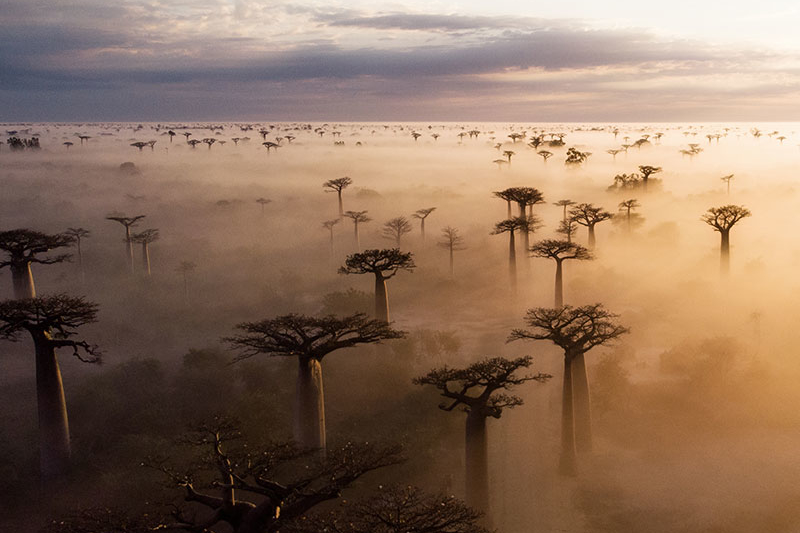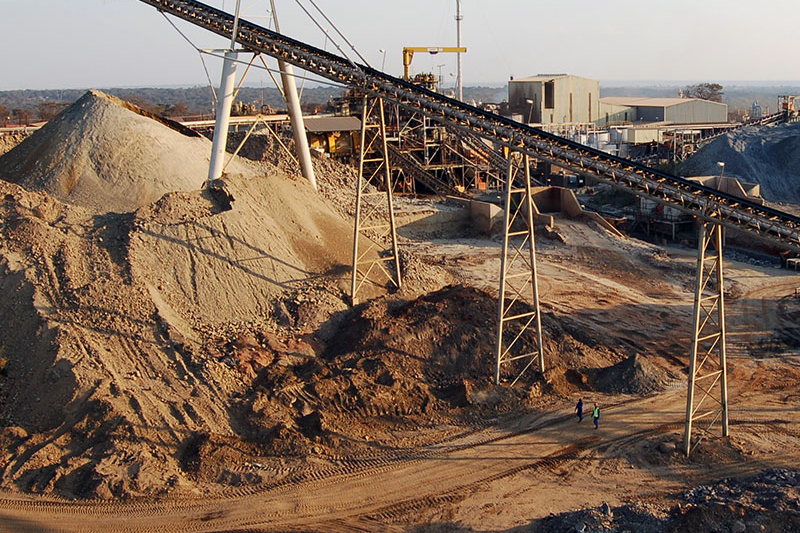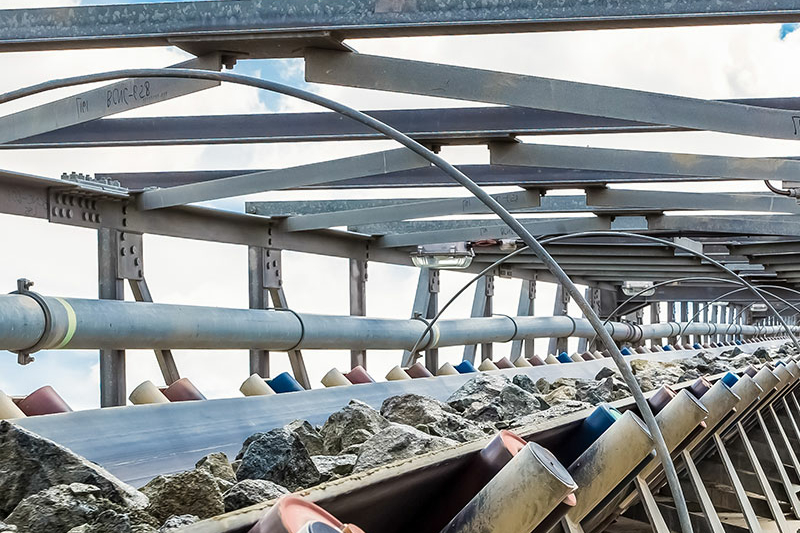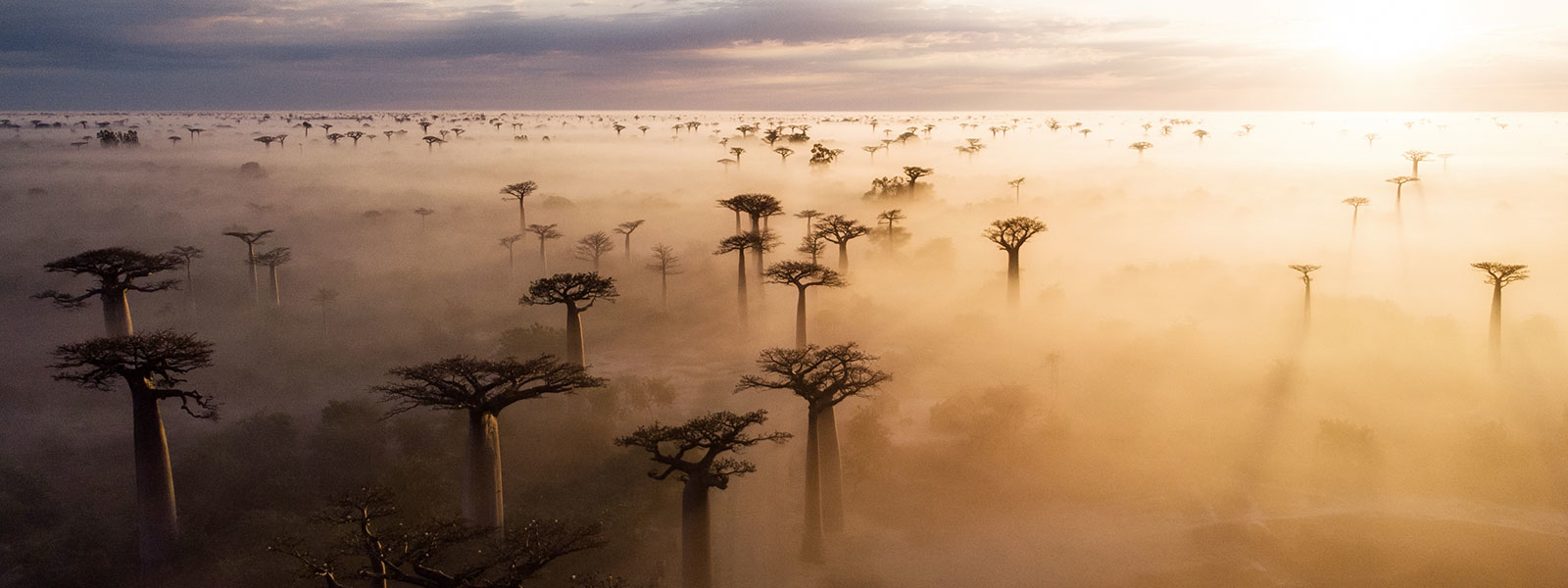Climate change litigation in Africa: Current status and future developments
Climate change litigation is increasing steadily worldwide, although few cases have been filed yet in Africa.

By Mukund Dhar, Africa Interest Group Leader
Our seventh edition of Africa Focus focuses on the potential for transformative changes within Africa during a time of historic global transition—not just from a COVID-19 to post-COVID-19 world, but against the backdrop of the United Nations Climate Change Conference COP26 in Glasgow, Scotland.
Issues around balancing greenhouse gas emissions against the development and use of natural resources as Africa industrializes and seeks to overcome roadblocks and challenges to growth and climate change-related challenges and vulnerabilities against GDP growth and increasing prosperity will be seen increasingly across sectors, industries and geographies in Africa. These discussions are already defining the way in which governments, investors, lenders, communities and other stakeholders view opportunities and investments in Africa and will do so more directly and more frequently in the coming years.
What does this mean for the world of business? Litigation related to climate change, a now well-established trend in Europe and North America, seems to have reached Africa, too. In "Climate change litigation in Africa: Current status and future developments," we outline signature cases and examine climate-related matters that might trigger challenges and disputes across Africa.
Equally, we all recognize that there are increasing investment opportunities when it comes to renewable energy. Seven of the ten sunniest countries in the world are in Africa, and wind power is no longer a novel feature in the increasingly sophisticated energy landscape in Africa. In "Renewable energy in Africa: Update in the era of climate change," we explore the significant opportunities for wind, geothermal and hydropower, too.
US foreign policy toward Africa has undergone significant shifts under the Biden administration. In "US government agencies focus on Africa," on the continent and their focus and how that ties in with both energy transition and renewable energy. In "Debt: Outlook for Africa brightens after challenging first half to the year," we discuss recent successful loan and bond issuances by African borrowers, investor resilience and lender interest in high-quality credits throughout the region.
Africa is experiencing a boom in M&A. In "M&A transaction terms: Comparing Africa to Europe," we contrast terms that typically apply to African M&A transactions, with those in Europe. And "African M&A stages a comeback" explores how African transactions appear to be highlighting a renewed sense of confidence among dealmakers. Acquisition and divestment strategies in Africa have become highly sophisticated. As a case study, "Acquisition financing in an era of energy transition" describes the January 2021 sale of a 45 percent stake in Nigerian Oil Mining Lease 17 (OML 17) and related infrastructure assets, using an innovative, first-of-its-kind hybrid financing structure.
Finally, "Southern Africa's PGMs are on the rise" explains how platinum group metals (PGMs) are increasing in southern Africa mining, on the back of demand for net-zero and the green economy.
Climate change litigation is increasing steadily worldwide, although few cases have been filed yet in Africa.

Africa offers vast potential for renewable energy deployment and investments.

Significant differences exist between terms that typically apply in M&A transactions in Africa and Europe.

H1 2021 dealmaking within the continent appears to be turning a corner.

Africa is a priority for several Biden administration agencies working in development finance.

Lender caution following Zambia's debt repayment default in 2020 has weighed on African debt issuance, but successful raisings by high profile borrowers show that investor appetite remains resilient.

An innovative, first-of-its-kind hybrid acquisition financing in Nigeria.

PGMs are helping Southern African mining remain relevant and contributing to a global clean and green transition.


Climate change litigation is increasing steadily worldwide, but few cases have been filed yet in Africa
Subscribe to receive Africa Focus
Only ten climate change cases have so far been raised on the African continent.
Climate change litigation covers a range of different proceedings. Generally, it is defined as claims that expressly raise an issue of fact or law relating to the causes or impacts of climate change.
Due to increased global urgency to tackle climate change, climate change litigation has dramatically increased in recent years, particularly in the US and Europe. More than 1,000 climate cases have been filed globally since 2015 (approximately the past six years), compared to 834 cases filed in 1986 – 2014 (approximately 28 years).1 Despite this global increase, only a few cases specifically related to climate change have been filed in Africa.
The African continent is particularly vulnerable to the impact of climate change, as global warming is expected to increase droughts, desertification and flooding across the continent.2 However, only ten climate change cases have been raised in African jurisdictions to date.3
This situation is unlikely to remain this way. As the scale and scope of climate change litigation continue to grow, with a notable rise in the number of strategic claims now intending to influence government policies and corporate investment decisions, litigation related to climate changing activities or effects on the African continent could increase significantly in the coming years.
Historically, climate change litigation principally focused on claims for damages against large oil & gas companies, mainly on the basis that these companies produce and distribute products that directly relate to greenhouse gas (GHG) emissions. For instance, several US states and municipal authorities—including authorities from California, Colorado, Delaware, New Jersey, Rhode Island, South Carolina, Washington State and Maryland—have commenced proceedings against energy companies, seeking compensation for the alleged damages caused to local communities as a result of climate change. However, these claims have struggled to succeed against the complex energy sector, where myriad supply chains and consumer choices can make it difficult for claimants to establish direct causal links between the alleged harm and a specific company's GHG emissions.
Consequently, claimants have sought to increase the scope of climate change claims by bringing claims for relief other than damages and basing their claims on alternative causes of action, which do not require them to prove a chain of causation between the defendant's GHG emissions and the specific climate-related injury that is alleged. Indeed, one of the most significant trends in climate change litigation has been the emergence of rights-based claims, in which claimants invoke their human rights as a means of trying to hold governments and corporations accountable for their climate change commitments.
The well-publicized success of the Urgenda Foundation's claim against the Netherlands, which was originally brought before the District Court of The Hague in 2015, has been triggered for other wide-reaching rights-based claims. The Urgenda Foundation (a Dutch environmental group) claimed that the government of the Netherlands had failed to take sufficient action to reduce its carbon emissions, in violation of the government's duty of care to its citizens under Articles 2 (Right to life) and 8 (Right to respect for private and family life) of the European Convention on Human Rights. This was the first decision by any court in the world to order a nation to limit its GHG emissions for reasons other than statutory mandates. The case was appealed twice, and the Supreme Court ultimately confirmed the decision in December 2019, ordering the government to reduce its GHG emissions by at least 25 percent (compared to 1990 levels) by the end of 2020.5
Following this landmark judgment, national courts of at least four other European countries—including Ireland, France, Germany and Belgium—have held that their governments failed to implement their climate commitments, in breach of human rights standards.6 Following a March 2021 decision by Germany's Federal Constitutional Court,7 the German legislature released an amended Climate Change Act with stricter emission targets.8 A further action of this nature was filed against the UK Prime Minister in May 2021.9 These claims show no sign of abating. Claimants are not only challenging governments and their climate commitments, but are increasingly advancing strategic litigation against large corporations in order to hold them accountable for their global activities, too.
Claimants are not only challenging governments and their climate commitments, but also are increasingly advancing strategic litigation against large corporations in order to hold them accountable for their global activities.
In May 2021, a group of seven Dutch non-governmental organizations (NGOs) (Milieudefensie et al.) successfully managed to extend the principles established in the Urgenda decision against a private corporation. Specifically, the District Court of The Hague found that Royal Dutch Shell (the UK-incorporated parent company of the Shell Group with its headquarters in the Netherlands) had a duty of care under the European Convention on Human Rights to do more to reduce carbon emissions, and thus ordered the company to reduce its carbon dioxide emissions by 45 percent by 2030, compared to 2019 levels.10 The Court also found that Royal Dutch Shell has a best-efforts obligation to reduce the emissions of its suppliers and customers. This decision could require a significant organizational commitment from Royal Dutch Shell and substantial engagement with all the companies in its global supply chain and business network, across all of the 70 countries in which the group operates.
This decision marks a critical turning point for global climate change litigation.
For the first time, a climate change-related claim has successfully targeted the business of a corporation and its operations worldwide, focusing on a corporation's obligations to society generally. The District Court of The Hague specifically noted that, as the policy-setting body for a major player in the global oil industry, "much may be expected of" Royal Dutch Shell by way of active steps to safeguard human rights in relation to climate change.11 Thus, the Court distinguished between the activities of Shell and its parent company, recognizing that Royal Dutch Shell's responsibility for emissions from the Shell Group was higher than for emissions from the wider group of entities.
Historically, climate change litigation principally focused on claims for damages against large oil & gas companies
This recent shift toward parent company liability for climate change and/or human rights violations has increased the potential for claimants in Africa to take legal action against entities based in Europe, as demonstrated by a recent decision before the UK Supreme Court (albeit only in relation to jurisdiction).
In this claim, brought by 40,000 citizens in the Niger Delta against Royal Dutch Shell, the claimants sought to hold the parent company responsible for the alleged environmental damage and human rights abuses by its Nigerian subsidiary, Shell Petroleum Development Company of Nigeria Ltd (SPDC).12 Specifically, the claimants alleged that oil spills and pollution from pipelines operated by SPDC caused substantial environmental damage, with the result that natural water sources cannot safely be used for drinking, fishing, agricultural, washing or recreational purposes.
While the merits of this claim are yet to be decided, the UK Supreme Court determined that it was at least arguable, based on the degree of control and de facto management, that the parent company owed a duty of care to the claimant Nigerian citizens with respect to alleged environmental damage and human rights abuses by Shell's Nigerian subsidiary.
Corporations could also be sued in the country where they are registered for climate change-related damage caused elsewhere in the world.
One case, in principle, could provide a precedent for claims concerning climate change-related damage in Africa. In 2015, a Peruvian farmer sued the German energy company RWE before the District Court of Essen for damages caused by the melting of a glacier near his hometown of Huaraz, Peru. Although RWE did not operate near Huaraz, the claimant argued that worldwide GHG emissions caused climate change, which had resulted in the glacier melting, and pursued RWE for only 0.47 percent of the adaptation costs needed to contain the floodwater from the melting glacier (a percentage said to correlate to RWE's contribution to global GHG emissions).13 Although the District Court rejected the claim (on the basis that the claimant had not proven a causal link between RWE's emissions and the alleged damage), an appeals court has allowed the claim to proceed and is now receiving evidence on causation.
Pending a decision on the merits of the case by the appeals court, this case demonstrates that German courts are prepared to accept jurisdiction of cases against domestic corporations concerning climate change-related damage resulting in other, distant countries.
The same principle could apply equally to countries in Africa.
In addition to the widening scope of parent companies' duty of care, newly enacted legislation in many European jurisdictions is also increasing the scope of potential liabilities for companies with activities in the developing world.
For instance, in 2017, France introduced the Law on the Duty of Vigilance, which requires French companies to identify and prevent risks to human rights and the environment that could occur as a result of their business practices.
In 2019, following the introduction of the Law on the Duty of Vigilance, six non-governmental organizations including Friends of the Earth commenced legal proceedings against Total, alleging that Total had failed to adequately assess the human rights and environmental impact of an oil project operated by Total in Uganda and Tanzania.14 In particular, the claimants alleged that Total's vigilance plan did not properly account for the project's potential life cycle of GHG emissions. In January 2020, France's Nanterre Civil Court declined jurisdiction to hear the claim on the basis that it was not competent to determine issues relating to the internal corporate management of the company with respect to the vigilance plan.
However, in a separate litigation brought against Total in February 2021 under the same law,15 the Nanterre Civil Court took the contrary view and ruled that it did have jurisdiction to determine the climate change-related claim. The Court noted that, although the vigilance plan affects the operations of a company, its purpose and the risks it is intended to prevent extend beyond this. Although the Court did not rule on the merits of the claim against Total, the fact that it confirmed its jurisdiction to do so is a major development, which is likely to encourage the commencement of further claims against French companies related to the environmental impact of their operations, both within France and elsewhere in the world.
The increasingly international harmonization of domestic legislation, in combination with the recent spate of unprecedented judgments that seek to bind governments and companies to their climate change commitments, could potentially have far-reaching consequences.
This may also hold true for the development of climate change disputes on the African continent, which so far has lagged behind other regions of the world.16
The success of rights-based litigation in Europe is likely to influence the future of climate change-related disputes in Africa as well.
Despite the high levels of vulnerability of its people and ecosystems to climate change, to date, there have been relatively few climate change-related claims brought before the courts of African countries.17
There are two main reasons for this. First, many African countries have weak or functionally nonexistent legislative frameworks in relation to climate change. Second, prospective claimants in these countries often face obstacles, such as a lack of standing and limited access to financial resources to fund their claims.18
While there are ongoing efforts to improve the legislative frameworks, and civil society activism is growing in many African countries,19 climate change is not typically regarded as a standalone issue, but rather a secondary consideration in broader environmental disputes concerning issues such as land use, natural resources conservation and environmental protection in general.20
That said, a number of noteworthy climate change disputes have been brought before the courts of certain African countries. The majority of these cases revolve around environmental impact assessments (EIAs), often for the construction of coal-fired plants. This has been the case, for example, in the cases of Save Lamu et al. v. National Environmental Management Authority & Amu Power Co Ltd21 in Kenya, and Earthlife Africa Johannesburg v. Minister of Environmental Affairs22 in South Africa.
In Save Lamu, which was brought before Kenya's National Environmental Tribunal in November 2016, a community-based organization representing Lamu County and other individual claimants challenged the issuance of a license by the Kenyan National Environmental Management Authority (NEMA) to a power company for the construction of the first coal-fired power plant in Kenya. The claimants argued that the Kenyan NEMA failed to conduct a proper EIA, and therefore contributed to the adverse effects on human health and biodiversity caused by climate change. In June 2019, the Tribunal set aside the license issuance and decided that the Kenyan NEMA had violated the EIA regulations by granting it without proper and meaningful public participation in the process. The Tribunal also ordered that the power company would have to conduct a new EIA study in compliance with the recently enacted EIA Regulations (the Climate Change Act 2016, the Energy Act 2019 and the Natural Resources Act 2016) if it chose to pursue the project.
In Earthlife Africa Johannesburg, which was commenced before the High Court of South Africa in March 2017, an environmental NGO brought a claim against the Minister of Environmental Affairs, the decision-makers of the Department of Environmental Affairs in charge of granting the environmental authorizations, and the companies intending to build the 1,200 MW coal-fired Thabametsi power plant. The claimant argued that the EIA failed to adequately consider the climate change-related consequences of the project under the National Environmental Management Act 107 (South African NEMA) of 1998. Although the South African NEMA does not expressly contemplate climate change, the High Court held that such considerations are relevant and their absence from the project's EIA made its approval unlawful. The High Court cited several reasons, especially South Africa's commitments under the Paris Agreement.
Following the High Court's decision, the Minister of Environmental Affairs reconsidered the permit application in light of a newly finalized climate change impact assessment and again approved the plant's authorization in January 2018. In March 2018, the NGOs Earthlife Africa and Trustees for the Time Being of the Groundwork Trust challenged the Minister's decision, asking the court to set aside the decision for failing to consider site-specific climate change impacts associated with the project. In November 2020, the High Court, following an agreement between applicants and defendants, issued an order setting aside all governmental authorizations for the coal-fired power plant.
A number of rights-based claims have been brought before African courts, including SERAC et al. v. Nigeria, Gbemre v. Shell Petroleum Development Company of Nigeria Ltd. and Others, and Mbabazi & others v. The AG in Uganda, some of which were among the first cases addressing rights-based issues.
In SERAC, two NGOs brought a claim in the African Commission on Human and Peoples' Rights in 1996 alleging that the government of Nigeria was guilty of violations of the right to a clean environment, owing to its condoning and facilitating the operations of oil corporations on Ogoniland. In May 2002, the Commission ruled that the Nigerian government was in breach of the African Charter on Human and Peoples' Rights and that the Ogoni people had suffered violations of their right to health (Article 16) and right to a general satisfactory environment favorable to development (Article 24) owing to the government's failure to prevent pollution and ecological degradation.
While not strictly related to climate change, this case is noteworthy as it recognized the right to a healthy environment and established a range of qualitative human rights standards that the country must observe in order to protect its citizens. There is no reason why those standards cannot be applied, by extension, to climate change issues.
In Gbemre, Mr. Jonah Gbemre, a representative of the Iwherekan community in the Niger Delta, filed a claim in the Federal High Court of Nigeria in July 2005 against the Nigerian government and Shell. Mr. Gbemre alleged that, in the course of their exploration and production activities, the defendant oil companies had engaged in massive and unceasingly intense gas flaring in the Iwherekan community, without considering the consequences, and alleged that these activities poisoned and polluted the environment, contributing to adverse and potentially life-threatening climate changes, including acid rain. On that basis, the claimant argued that the actions of the oil companies constituted a gross violation of the guaranteed fundamental rights of life and dignity of human persons provided in the Nigerian Federal Constitution and the African Charter on Human and Peoples' Rights. In November 2005, the Court agreed with the claimant's allegations and ordered the oil companies to stop flaring gas in the Niger Delta.
Finally, in Mbabazi, in September 2012, four citizens and a Ugandan NGO brought their claim against the Attorney General of the Republic of Uganda and the National Environment Management Authority (Ugandan NEMA) before the Ugandan High Court. The claimants alleged that various damage and loss of life resulting from extreme weather events were linked to climate change inaction on the part of the government. They argued that (i) the Ugandan Constitution makes the government of Uganda a public trustee of the national resources, including its atmosphere, and imposes a duty to preserve those resources from degradation for present and future generations; and (ii) unless action is taken immediately, the current climatic patterns of prolonged droughts, floods, hurricanes and crop losses will escalate into human catastrophe for both the present and future generations. After a preliminary hearing, the High Court ordered the parties to undertake a 90-day mediation process but since then has taken no further action.
Nevertheless, this case is noteworthy because it involved the invocation of the public trust doctrine, which has also been used by claimants in climate change disputes in other common law jurisdictions, for example, in the US in Juliana et al. v. the United States.23
The success of rights-based litigation in Europe is likely to influence the future of climate change-related disputes in Africa as well, particularly in light of the precedents established by the SERAC and Gbemre cases.
The growing number of African nations that are seeking to introduce specific climate change legislation could further boost this development.
Human rights will likely continue to be intrinsic to future cases, considering the increasing acceptance of the impacts of climate change on health, livelihoods, access to clean water and other fundamental rights. Moreover, if the public trust doctrine gains traction in other large common law jurisdictions such as the US or the UK, it could also become an argument for plaintiffs in African common-law jurisdictions such as Nigeria, Ghana or Kenya.
In any event, as the world's attention becomes increasingly focused on climate change mitigation and adaptation strategies, climate change-related litigation concerning economic activity or detrimental effects in African countries will inevitably increase.
This could take many forms. Claims could be brought in courts outside the African continent in relation to operations of multinational corporations within the continent, whether those corporations are incorporated within Africa or elsewhere. Equally, claims could be brought in African national courts in relation to the physical impacts of climate change on the continent. Rights-based claims could be brought against governments or corporations in African countries, based on national or transnational conventions and treaties protecting the rights of the relevant country's citizens.
Recent developments in climate change-related litigation in Europe have provided precedents for each of these categories of claims. So any business with material levels of GHG emissions should be aware of the risks of lawsuits and potential liability. Therefore, it is imperative that all such businesses carefully consider their climate strategies.
1 https://www.lse.ac.uk/granthaminstitute/wp-content/uploads/2021/07/Global-trends-in-climate-change-litigation_2021-snapshot.pdf, p. 4.
2 Kotzé, L. J., & Du Plessis, A. (2020). Putting Africa on the Stand. Environmental Law, 50(3), 615-663 (616-617).
3 According to the search engine on www.climatecasechart.com (accessed on 3 August 2021).
4 Urgenda Foundation v. The Netherlands C/09/456689 / HA ZA 13-1396.
5 Urgenda Foundation v. The Netherlands, 19/00135.
6 Friends of the Irish Environment v. Ireland 2017 No. 793 JR (2017); VZW Klimaatzaak v. Kingdom of Belgium & Others (June 2021); Neubauer, et al. v. Germany, Germany Federal Constitutional Court (2021); and Notre Affaire à Tous and Others v. France, No. 1904967, 1904968, 1904972, 1904976/4-1, Paris Administrative Court (February 2021).
7 Neubauer, et al. v. Germany, Germany Federal Constitutional Court (2021).
8 See Burianski, M., Hoffmann, S., & Parise Kuhnle, F. (2021). The German Federal Constitutional Court on the German Climate Change Act. Environmental Law & Management, 32(1), 12-17 (15).
9 Plan B Earth and Others v. Prime Minister.
10 Milieudefensie v. Royal Dutch Shell C/09/571932 / HA ZA 19-379.
11 http://climatecasechart.com/climate-change-litigation/non-us-case/milieudefensie-et-al-v-royal-dutch-shell-plc/, p. 29, para 4.4.16.
12 Okpabi and others v. Royal Dutch Shell Plc and another [2021] UKSC 3.
13 Lliuya v. RWE AG, Higher Regional Court of Hamm [2017] 5 U 15/17.
14 Friends of the Earth et al. v. Total.
15 Notre Affaire a Tous and Others v. Total.
16 Kotzé, L. J., & Du Plessis, A. (2020). Putting Africa on the Stand. Environmental Law, 50(3), 615-663 (617).
17 Kotzé, L. J., & Du Plessis, A. (2020). Putting Africa on the Stand. Environmental Law, 50(3), 615-663 (615).
18 Adelman, S., in: Alogna, I., I., Bakker, C., Gauci, J. P. (eds.), Climate Change Litigation: Global Perspectives, 2021, Chapter 12, p. 274.
19 Kotzé, L. J., & Du Plessis, A. (2020). Putting Africa on the Stand. Environmental Law, 50(3), 615-663 (618); Rumble, O., & Gilder, A. (2021). Climate Change Litigation on the African Continent. Konrad-Adenauer-Stiftung. Available at: https://www.kas.de/documents/282730/0/Climate_Litigation_Africa.pdf/1450e939-d100-a70e-8a9d-315161f96024?version=1.0&t=1624360880407 (last visited on 3 August 2021), p. 6.
20 Adelman, S., in: Alogna, I., Bakker, C., Gauci, J. P. (eds.), Climate Change Litigation: Global Perspectives, 2021, Chapter 12, p. 274.
21 See case summary at http://climatecasechart.com/climate-change-litigation/non-us-case/save-lamu-et-al-v-national-environmental-management-authority-and-amu-power-co-ltd/ (last visited on 3 August 2021).
22 Earthlife Africa Johannesburg v. Minister of Environmental Affairs and Others (65662/16) [2017] ZAGPPHC 58; [2017] 2 All SA 519 (GP) (8 March 2017).
23 Juliana et al. v. United States, United States District Court, District of Oregon, Eugene Division, docket no 6:15-cv-1517.
White & Case means the international legal practice comprising White & Case LLP, a New York State registered limited liability partnership, White & Case LLP, a limited liability partnership incorporated under English law and all other affiliated partnerships, companies and entities.
This article is prepared for the general information of interested persons. It is not, and does not attempt to be, comprehensive in nature. Due to the general nature of its content, it should not be regarded as legal advice.
© 2021 White & Case LLP